The series La Vida Local is aimed at connecting you with some of the best foods and goods within Vancouver while raising awareness of how buying local benefits everyone. I'm very excited to be able to introduce you some of my favourites around the city that I may or may not even know about yet!
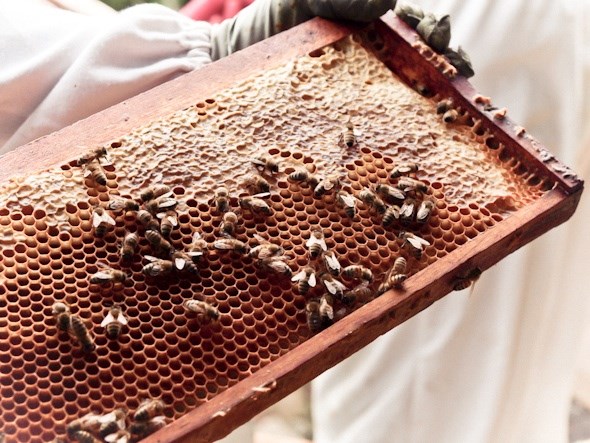
Coming off of the Local Food Challenge, I'm very excited to begin a new feature with Vancouver Is Awesome titled "La Vida Local," which will be profiling local goods. I'm looking forward to being introduced to and introducing you to some of the amazing food and products this city has to offer. First up in the series is Mellifera Bees!
Do you remember that episode of the Magic School Bus where Ms. Frizzle took her class to a beehive and they learned about how honey is made? What I found most interesting about that episode and has stuck with me to this day is when they learn how bees communicate through the waggle dance. The direction the bees move indicates a source of pollen or nectar in relation to the sun and the duration signifies how far the source is located. To top it off, they do this dance in the darkness of the hive!
I was reminded of how fascinating bees are this past weekend by Melissa Cartwright, founder of Mellifera Bees. Initially sparked by her curiousity and now grown into a business, local beekeeper Cartwright shares her appreciation for these creatures through her delicious honey infusions. This summer she offered two hive tours at Le Marche St. George which is home to one of her hives with the other located on top of a parkade in Chinatown. Through these tours others were able to explore their curiousity, learn about the intricacies of the hive and the colony, and sample different types of honey from her own line as well as from around the world.
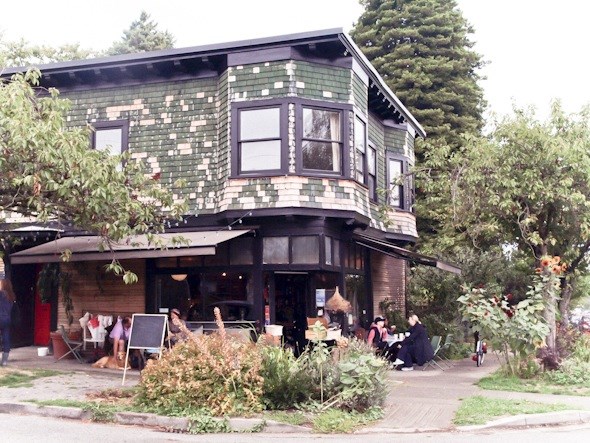
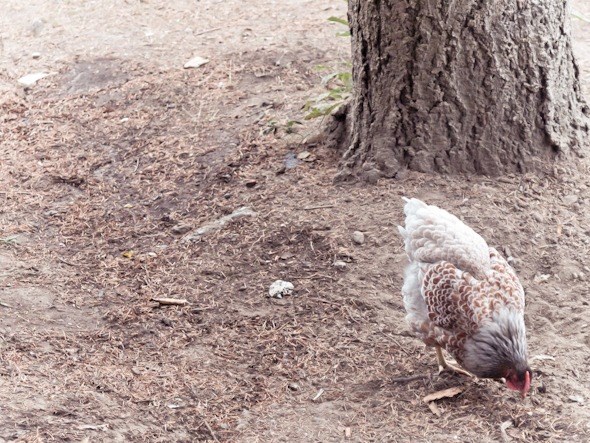
The tour went above and beyond my expectations. The group of us were taken through the different levels of the hive and learned about how the colony organizes itself through essentially a democratic process. The bees remained pretty calm and Melissa was very careful in her movements when exposing the hive to us. We were encouraged to ask questions throughout the tour so I wanted an idea of how many bees we were standing just a few feet away from. According to Melissa, there are about 50, 000 in the hive!
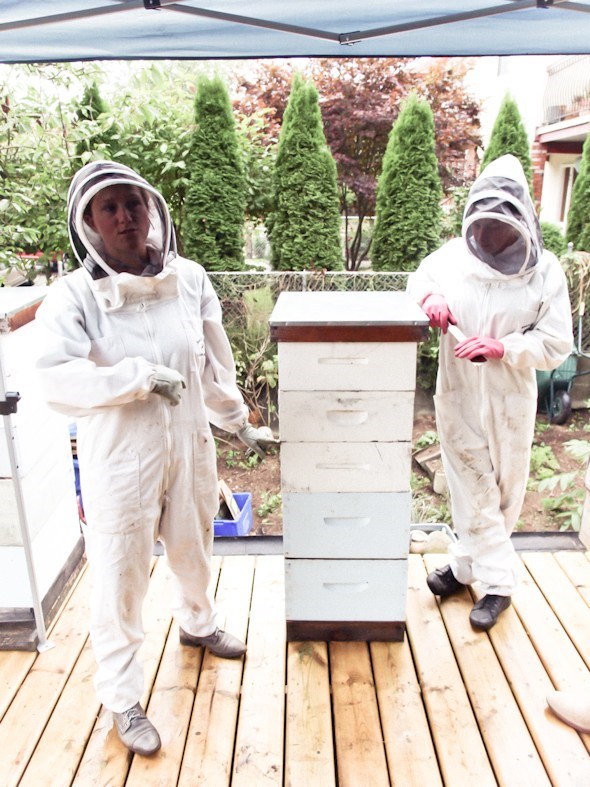
After the tour, Melissa was kind enough to answer some more questions and continue discussing the bees.
What made you decide to get into beekeeping?
I was looking for a new book to read on a rainy winter day, and came across one on bees. I figured it seemed like an interesting subject matter. Little did I know it would lead me to reading more books on bees, taking a beekeeping course and by that spring getting my first hive.
What do you think is the most fascinating tidbit about bees?
Mostly everything about bees is interesting, but most people are amazed when I tell them that each bee in her life will make 1/12 of a teaspoon of honey!
Do you notice any characteristics in the bees from your different hives?
For sure, some hives are calm and easy to work with, while others are feisty and have a strong sense of defence. Generally as the hive gets stronger through the summer season their protection of the hive grows as well, so I try to be slower in movement but also swift in my hive checks to keep their stress from my intrusion down.
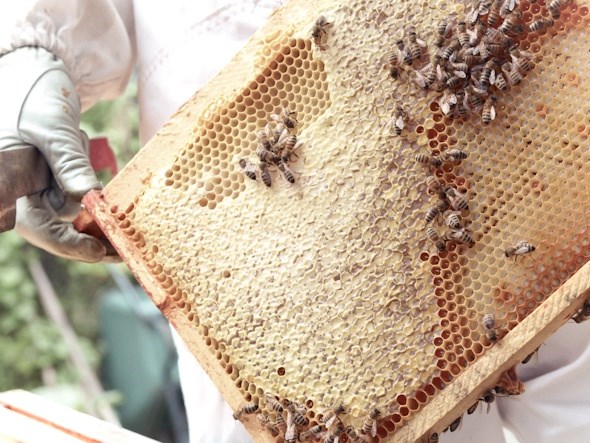
You're incredibly informative on these tours and it's obvious you have a passion for what you do. What are your plans for the future of Mellifera Bees?
The last two hive tours were really fun to do and so next summer I would like to offer a few more. Over the winter when the bees are keeping warm I'll be creating some new infusions, on the go right now are thyme, fennel, plus a ginger version. From a long term point of view I have lots of ideas, one I tumble around is opening a Mellifera Cafe, which would have a focus on honey.
What do you hope others take away from your bee hive tours?
Mainly a deeper appreciation of bees and how complex they are. Additionally a want to help them through growing food sources, and a want to support their local beekeepers.
What are some of the little things we can do to help the bees out?
An easy thing to do is to plant flowers! Especially helpful are plants that flower in early spring and late into the fall when most nectar sources are done. Even better is to encourage overall reduced use of pesticides by supporting organic farming.
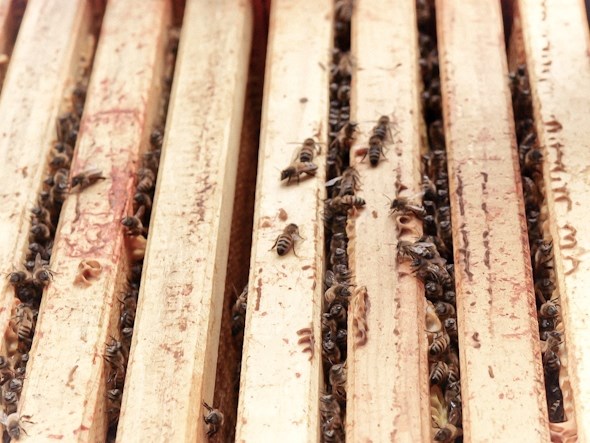
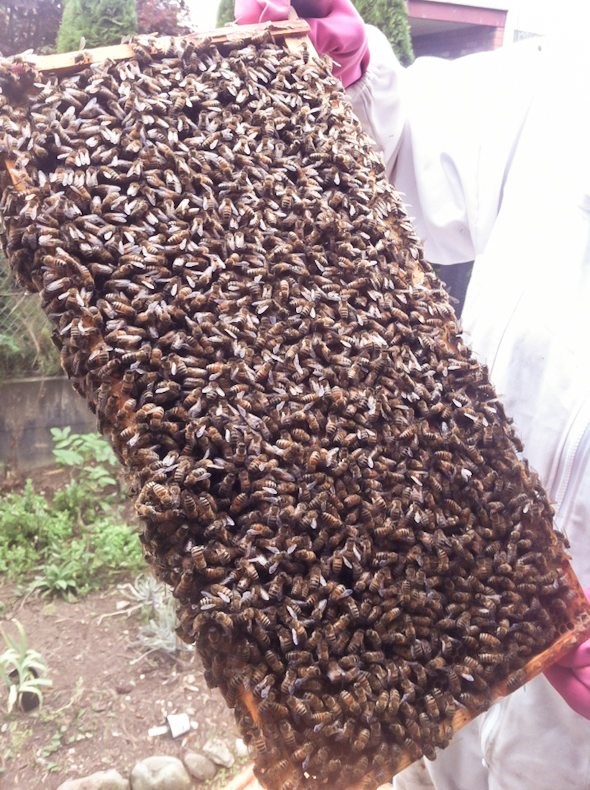
Could you share your favourite recipe incorporating one of your honey infusions?
My current breakfast is sourdough toast with almond butter and cardamom honey-so delicious! I've been meaning to make a flatbread with goat cheese, figs and thyme infused honey but haven't yet done it-maybe tonight!
On the tour you provided about a dozen types of honey from around the world. Other than your own of course, what is your favourite type of honey?
I bought my favorite honey ever in Bologna, Italy. It is a simple wildflower honey, but the depth of its taste and grainy texture which slowly melted on my tongue had me hooked. I ate the entire jar spoon to mouth!
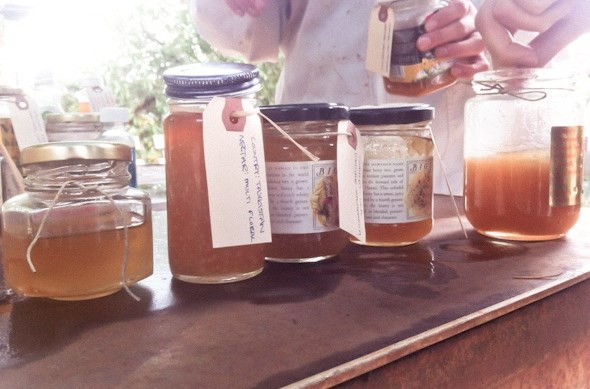
It was interesting to taste the differences the environment has on the taste of honey, such as the blackberry and wildflower type you had us sample. How would you describe the taste of Vancouver honey compared to some of the other regions in the world?
Even within Vancouver the honey flavour changes! Last season the honey from my hives at Main & East Georgia was like a dark chestnut caramel, while my honey from 36th & Maple was light floral with a hint of raspberry. It really depends on what is planted in the area near the hives.
If you are interested in any future hive tours and other events with Mellifera Bees, please sign up for the newsletter here and keep up to date on Facebook, Twitter, and Instagram. Thanks again for a wonderful experience, Melissa!



